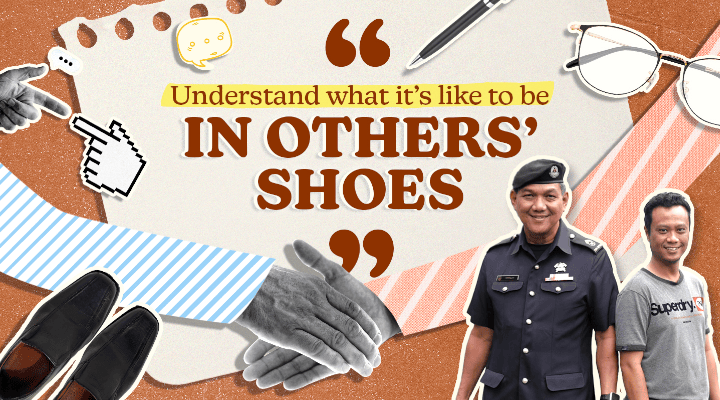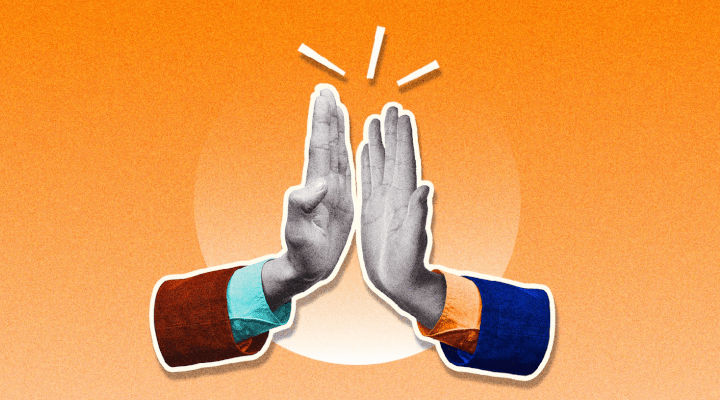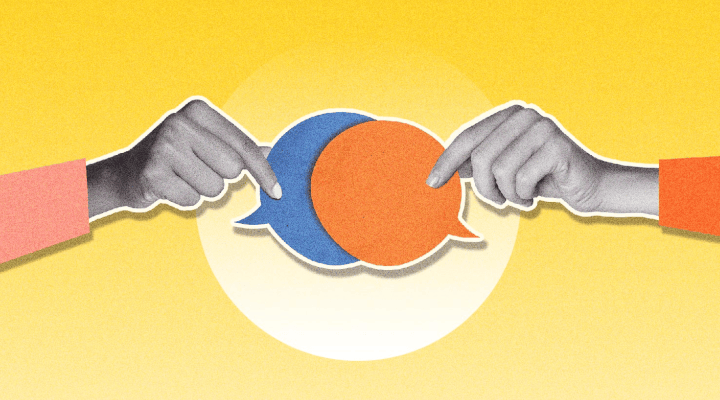Age Is Just A Number: Creating Unity In Multi-Generational Teams

In Singapore’s diverse workforce, each generation – from Baby Boomers to Gen Zs – brings their unique work experiences, values, and styles to the table.
It’s therefore no surprise that collaborating across generations requires care, as each group may have different communication preferences, expectations, and problem-solving approaches.
These challenges are all too familiar for Singapore Civil Defence Force (SCDF) officers Sazali Masraji, 40, and Hayatullah Noordin, 59, who have worked alongside each other for four years now.
In an interview with Challenge, they share four practical strategies for overcoming age differences to work well as a team:

1. Build Strong Relationships
The foundation to any successful collaboration at the workplace lies in building strong relationships. The stronger your relationships are with your team, the easier it will be to work with them.
To build genuine connections with co-workers, start by getting to know their interests, opinions, and experiences.
During his decade of work with the SCDF, Sazali has formed some of the best friendships with older colleagues, many of whom have retired from the Force. “I’ve spent a lot of time with them in and out of work,” says Sazali.
One person he clicks well with is Hayatullah, who shares: “I’ve known Sazali for four years, and I also found out that he is very close to quite a number of my friends in the Force, who are of the same age as me.”
By spending time with older colleagues, Sazali has gained a deep appreciation and respect for the valuable contributions and experiences of these veterans.
“SCDF’s core business is in firefighting and saving lives. Since its Fire Service days, the organisation’s operational strategies have improved tremendously over the years.
No one can deny that the doctrines and directives put in place today are the result of the contribution of experience and wisdom from our veteran firefighters.”
-Sazali Masraji, Personnel Officer, SCDF
Conversely, Hayatullah’s frequent engagement with the younger generation has fostered mutual understanding. “Sometimes, we need to empathise with the younger generation and remind ourselves that we used to be like them during our ‘youthful and innocent’ days when we were just starting our career journey.”
Although there have been multiple instances where Hayatullah has found himself in conflict with someone younger, he emphasises that “anger and resentment will not solve anything”.
“As the senior staff with the most experience, we should be the ones setting a good example for the young to follow, much like a parent teaching his child,” he adds.
2. Learn From One Another
Every team member, regardless of age, contributes unique qualities to the workplace. To move as one, we must embrace our differences, leverage our strengths, and learn from one another.
However, navigating these differences and helping others learn new skills isn’t easy. Sazali, who finds himself “sandwiched between the younger and older generations”, emphasises the need for patience and empathy, as well as focusing on understanding rather than determining right or wrong methods.
“It takes constant practice to integrate and learn new skills at work, so we need to have the patience to educate our colleagues who may have difficulties when it comes to mastering skills, especially those related to technology.
Even for something as simple as Skype calls, it is not easy for someone who is used to communicating with others in person rather than virtually.”
-Sazali Masraji, Personnel Officer, SCDF
Sazali readily assists Hayatullah with tech-related tasks, such as applying for online courses through mobile applications. Expressing appreciation for Sazali’s patience, Hayatullah says: “We old folks can be confused at times since we usually rely on emails, but Sazali is very patient when it comes to teaching me and he spends quite a considerable amount of time with me to ensure that I fully understand processes before moving on.”

3. Schedule Regular One-On-Ones
One-on-one meetings are crucial to foster deeper understanding between co-workers. By encouraging open dialogue and welcoming feedback, it provides a safe space to share thoughts and ask questions.
Sazali regularly schedules such chats with older workers to support them in their career with the SCDF. “As a person grows older, it’s important to recognise emotional factors that may add to the challenges they face at the workplace, such as feeling inadequate,” Sazali says.
Hayatullah adds that these sessions offer a platform for team members to better understand each other’s viewpoints, bridge generational gaps, and cultivate empathy.
“We need to be patient with one another and tolerate each other’s differences. Talk things out often to prevent misunderstandings and you will realise that even the senior generation is more than willing to sit down, discuss and stand on common ground with you to settle differences.”
-Hayatullah Noordin, Senior Discipline & Security Specialist, SCDF
4. Avoid Pointing Out Age Differences
To foster an inclusive and respectful culture within your team or agency, avoid drawing attention to age differences among colleagues. Mentioning generational gaps can lead to biased assumptions about an individual’s capabilities, leading them to feel undervalued at work.
Instead, focus on the strengths and experiences that each team member brings to the table.
To foster harmony among colleagues of different ages, Sazali stresses the importance of looking at the bigger picture.
“Perception is one of our greatest enemies – we all have a habit of judging a book by its cover, and we often do not make the effort to look at the bigger picture to understand why someone reacts or behaves in a certain way.
That is why we should always remind ourselves to never perceive someone negatively. Instead, we should communicate to understand what it is like to be in one another’s shoes.”
-Sazali Masraji, Personnel Officer, SCDF
Sazali also reflects on a reunion lunch and Hari Raya celebration with veteran Fire Service firefighters: “It was a surreal experience listening to their firefighting stories from the past. It’s hard to believe that these frail-looking old men and women used to be in the frontlines saving lives.”
This experience prompted him to recognise the significant contributions of the older generation and the importance of challenging age-based stereotypes.
Celebrating Generational Differences
Despite the challenges that come with an age-diverse workforce, understanding, empathy and open communication can foster a culture where generational differences are celebrated.
When individuals across generations collaborate, share knowledge, and learn from one another, they create a dynamic workplace that can harness the strengths of each age group, ultimately promoting productivity and inclusivity at work.

Want more stories like this in your inbox? Subscribe to the Challenge newsletter.
- POSTED ON
Jan 3, 2024
- TEXT BY
Yoganeetha Sivakumar
- PHOTOS BY
Constance Neo








